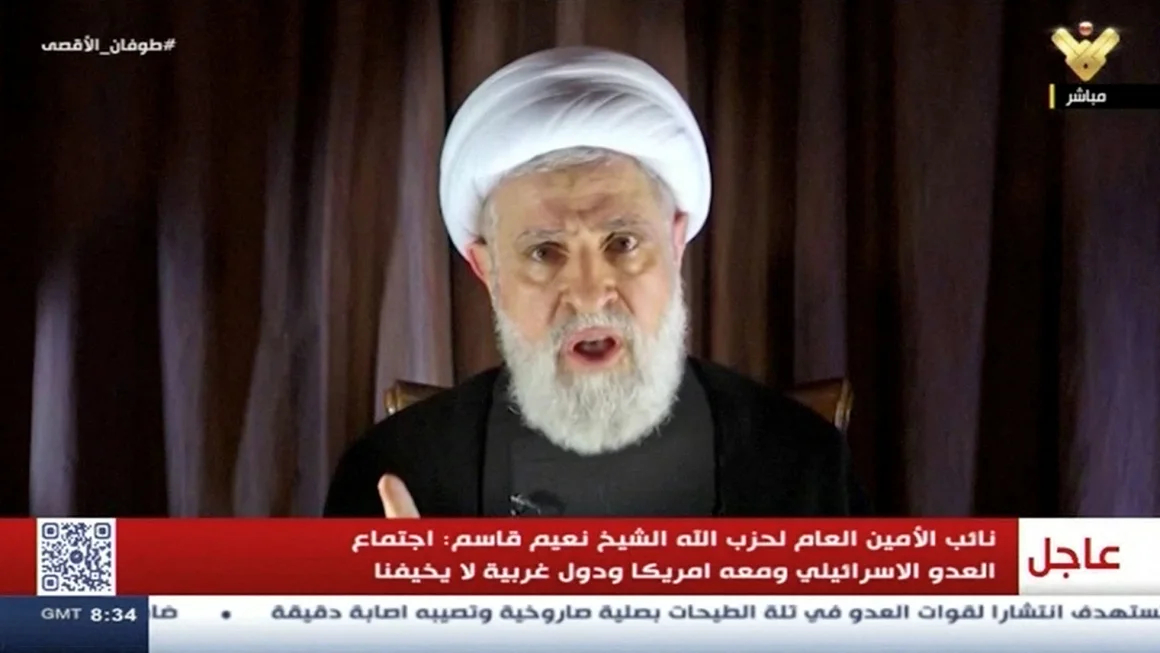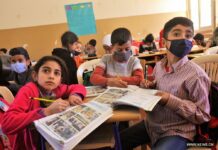
In a significant shift, Hezbollah officials have indicated that a ceasefire with Israel in southern Lebanon could be reached without requiring an end to Israeli operations in Gaza. This change marks a stark reversal from earlier statements, where Hezbollah leadership vowed to continue fighting until Israel halted its offensive against Gaza and its ally, Hamas.
Naim Qassem, Hezbollah’s deputy leader and acting head after the death of Hassan Nasrallah in an Israeli strike, stated in a televised speech on October 8 that the group would support efforts led by Lebanese Parliament Speaker Nabih Berri to secure a ceasefire in Lebanon, without preconditions related to Gaza.
“We support the political activity being led by Berri under the title of a ceasefire,” Qassem said. “If the enemy [Israel] continues its war, then the battlefield will decide.”
This rhetoric contrasts sharply with Hezbollah’s position immediately following Hamas’ attack on Israel on October 7, 2023. For weeks, Hezbollah insisted that it would continue to launch rockets and attacks across the Lebanese-Israeli border until Israeli airstrikes and military operations in Gaza ceased. However, as the conflict drags on and Israel intensifies its offensive, Hezbollah appears to be recalculating.
Hezbollah’s shift comes amid a host of pressures, including mass displacement in southern Lebanon, where many of its supporters live. The escalation of Israeli ground incursions and airstrikes has also raised concerns among some Lebanese political actors who oppose linking Lebanon’s fate to Gaza’s war.
A Lebanese government official, who spoke to Reuters on condition of anonymity, attributed Hezbollah’s position to the strain placed on communities in southern Lebanon and Beirut’s southern suburbs. Over 1.2 million people have been displaced within Lebanon since the conflict intensified, according to Lebanese authorities.
“We will not tie our fate to the fate of Gaza,” said veteran Druze politician Walid Jumblatt, urging a ceasefire independent of the Gaza conflict. Christian politician Suleiman Frangieh, a close Hezbollah ally, echoed this sentiment, stating that the priority is to halt Israel’s offensive and ensure Lebanon’s unity.
Hezbollah has not formally acknowledged a shift in its position, and some lower-ranking officials maintain that their commitment to supporting Hamas remains intact. However, two Hezbollah officials indicated a possible change over the weekend, discussing a potential truce without tying it to Gaza.
Hezbollah’s retreat from its earlier hardline stance stands in stark contrast to the resilience of the Palestinian people in Gaza, who have endured over a year of Israeli military operations, including bombings and blockades – the servility of which may have been considered to be genocide. Despite severe casualties, accusations of war crimes, and the ongoing humanitarian crisis, Palestinian demands for a ceasefire remain steadfastly tied to a cessation of hostilities and the trade of hostages.
While Gaza has suffered relentless attacks and continues to be the victim of Israeli war crimes, Hezbollah’s month-long involvement in the conflict has already prompted a reconsideration of its strategy. Hezbollah’s forces have come under intense pressure, but unlike Gaza’s enduring defiance, Hezbollah appears to be softening its terms under Israeli bombardment.
Diplomats and regional experts note that Hezbollah’s flexibility may come too late to generate diplomatic momentum. Israel has increased its military operations in southern Lebanon, including ground troop deployments and airstrikes on Hezbollah positions in Beirut and beyond.
Mohanad Hage Ali, an expert at the Carnegie Middle East Center, observed that Israel’s military pressure has shifted Hezbollah’s approach. “Hezbollah is playing politics, but that’s not enough for the Israelis,” he said, indicating that Israel’s focus is more on military dominance than diplomatic negotiations at this stage.








